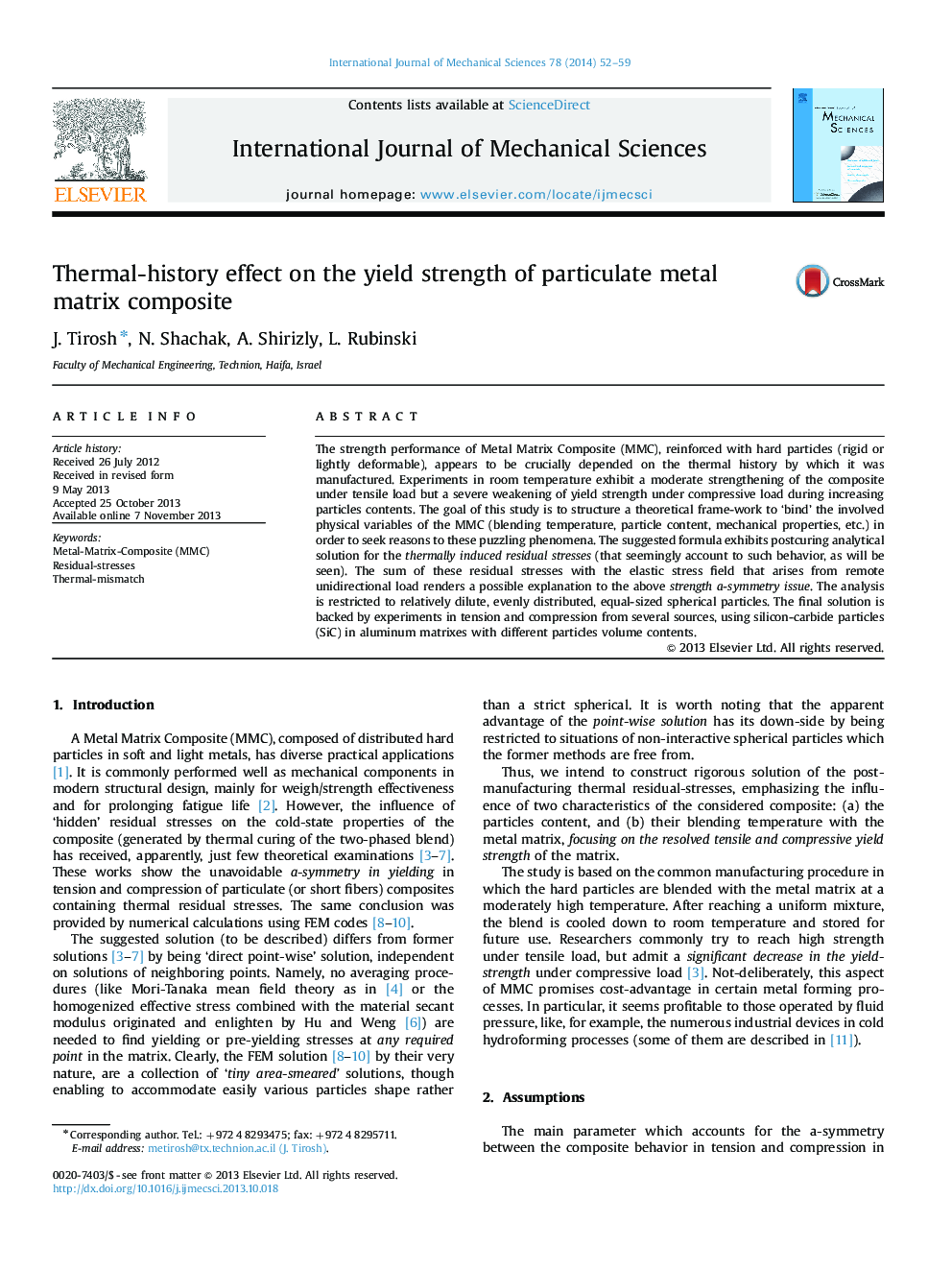| Article ID | Journal | Published Year | Pages | File Type |
|---|---|---|---|---|
| 780166 | International Journal of Mechanical Sciences | 2014 | 8 Pages |
•Hard particles in Metal Matrix Composite (MMC) show light strengthening under tensile load and relatively severe weakening under compression.•The reason to such a-symmetrical behavior is the residual stresses resulting from thermal mismatch during the cool-down process of the blend.•The parameters that affect this phenomenon are elaborated via analytical solution and backed by experiments.
The strength performance of Metal Matrix Composite (MMC), reinforced with hard particles (rigid or lightly deformable), appears to be crucially depended on the thermal history by which it was manufactured. Experiments in room temperature exhibit a moderate strengthening of the composite under tensile load but a severe weakening of yield strength under compressive load during increasing particles contents. The goal of this study is to structure a theoretical frame-work to ‘bind’ the involved physical variables of the MMC (blending temperature, particle content, mechanical properties, etc.) in order to seek reasons to these puzzling phenomena. The suggested formula exhibits postcuring analytical solution for the thermally induced residual stresses (that seemingly account to such behavior, as will be seen). The sum of these residual stresses with the elastic stress field that arises from remote unidirectional load renders a possible explanation to the above strength a-symmetry issue. The analysis is restricted to relatively dilute, evenly distributed, equal-sized spherical particles. The final solution is backed by experiments in tension and compression from several sources, using silicon-carbide particles (SiC) in aluminum matrixes with different particles volume contents.
